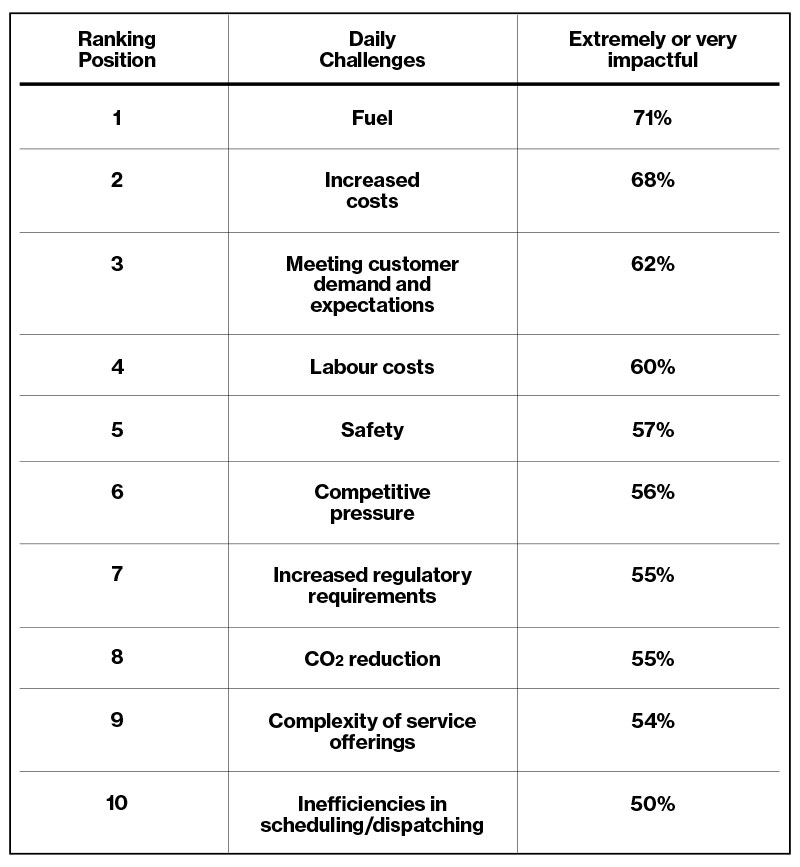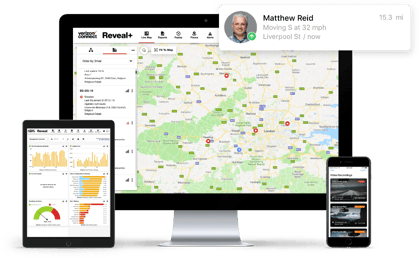Get your new Fleet Technology Trends Report Europe 2023
We surveyed more than 1,300 fleet managers across Europe to find out how SMB and Enterprise businesses embrace fleet management...
Read moreWhy do 71% fleets in surveyed in the UK and Europe use GPS systems for their daily operations?
According to the Fleet Technology Trends Report 2023 conducted for Verizon Connect by ABI Research, the number of fleets using GPS fleet tracking technology stands at 71%, a 3-percent increase on the previous year. This shows that it’s an established and growing solution for businesses in the UK and Europe.
Furthermore, GPS tracking solutions are utilised by 71 % of small businesses in the UK and Europe, with 70% of medium businesses and 78% of enterprises also utilising this technology. Therefore, the vast majority of businesses, regardless of size, have adopted GPS fleet tracking solutions.
There are many reasons for the increased use of GPS vehicle tracking in small, medium, and enterprise businesses in the UK and Europe. Fleet managers and business owners are facing multiple challenges, including a highly competitive market, unpredictable fuel prices, rising operating costs, meeting customer needs as well as improving productivity and efficiency across the business.
Let’s dive into the top 10 challenges that fleet managers highlighted in our survey as ‘very or extremely impactful’ to their daily operations:

Promote safety: Monitor driver behaviour that might affect their safety. Hard braking, quick starts, and harsh cornering are reported and rated as moderate or severe. Speeding, out of hours driving and unauthorised stops in each location are also monitored.
Monitor fuel consumption: Measure the fuel efficiency of vehicles by comparing fuel purchases against speeding, idling and harsh driving events. Receive a better overview and breakdown of fuel purchases for each vehicle or excessive idling. Measure the carbon footprint of vehicles to help improve fuel efficiency and the sustainability of your business by reducing CO2 emissions.
Help boost daily operations: Smart scheduling and dispatching provides suggestions for technicians based on availability, skill set, and location. This technology can help improve productivity and provide better daily time management for technicians. Keep track of job statuses, jobs scheduled and track your vehicles in near real-time from a central hub. This makes it easier to assign the nearest technician to the next customer.
Improve customer experience: Automatically alert customers of ETAs and delays using GPS tracking data to offer an innovative and high-quality service.
Help improve routing: Choosing the safer and faster route can help avoid driving extra miles and promote fuel efficiency, reducing the overall cost of daily operations.
Plan an effective vehicle maintenance programme: Maintain your fleet vehicles and keep on top of maintenance schedules. This not only helps to keep drivers safe, but also can help to keep vehicles in use for longer, which in turn enables your business to stay profitable.
To learn more about how fleet management technologies can help you and your business, download the complete Fleet Technology Trends Report Europe 2023.
Schedule a demo and discover how our platform gives you the visibility you need to get more done.
Tags: All, Cost control, Customer service, Data & analytics, Dispatching & scheduling, Productivity & efficiency, Routing, Safety, Team management




Find out how our platform gives you the visibility you need to get more done.
We surveyed more than 1,300 fleet managers across Europe to find out how SMB and Enterprise businesses embrace fleet management...
Read moreThe 2023 Fleet Technology Trends Report for the UK and Europe revealed for the second year in a row, that customer service...
Read moreInflation, supply chain constraints, fuel price fluctuations, and a more competitive market have created an environment...
Read moreAs a fleet owner, your day-to-day costs can quickly add up. What you don’t know is there are further hidden, expensive...
Read more